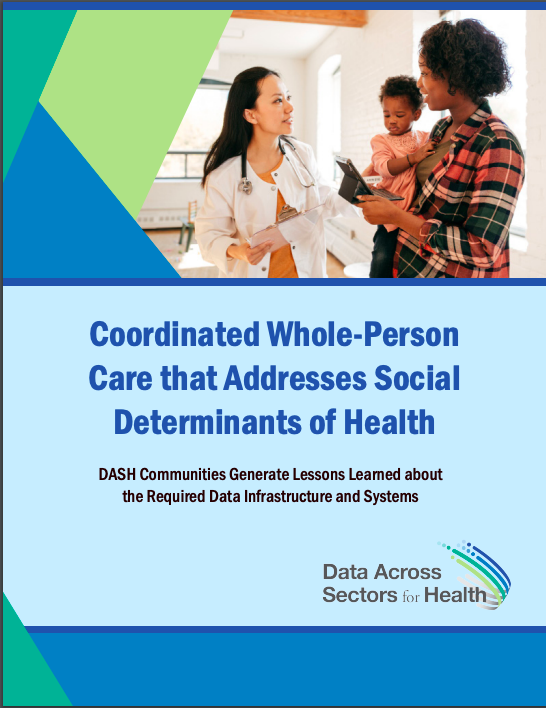
This report focuses on five projects funded by Data Across Sectors for Health (DASH) that are developing the data infrastructure to support models of coordinated care across medical and community services. To achieve better health outcomes at a lower cost, clinical and social service providers increasingly need access to information reflecting the social determinants of health, such as employment, housing, and education.
This report summarizes approaches and lessons learned from the five DASH grantees—all of whom have unique target populations, goals, partners, and resources, yet collectively are generating lessons learned with respect to multi-sector data sharing specifically for care coordination. These include Altair Accountable Care Organization (ACO) in Minneapolis, Minnesota; HealthInfoNet in Portland, Maine; the Center for Health Care Services in San Antonio, Texas; the Parkland Center for Clinical Innovation in Dallas, Texas; and the White Earth Nation in NorthCentral Minnesota.
The desired outcome of these models involves system-level changes that are oriented around the whole person, and not exclusively on their health care needs. These models of care require collaboration not just across organizations, but across sectors.

 Back to Resources
Back to Resources